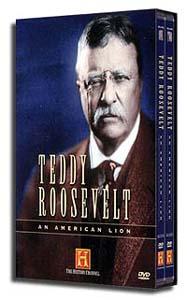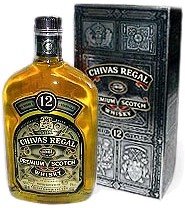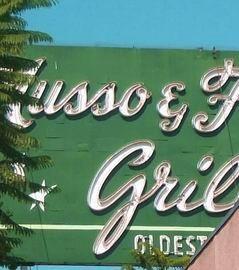Toward the end of the civil war in the former Yugoslavia, my Croatian Ex-Husband and I drove up the still stabilizing Dalmatian Coast to Venice, lured by the promise of a cheap vacation. The only major flaw in our travel plans was a small section of Bosnia, where the fighting raged on, and which I will only remember as a series of tense military road blocks along the craggy coastal highway fronting the Adriatic. While the attitude toward a Dubrovnik-born national would vary according to the religious and ethnic identities of those controlling the area in question, all factions seemed very friendly toward me, an American, a Southern Californian, no less.
I remember one curious young soldier stamping out an unfiltered Camel to examine the address on my driver’s license, smiling broadly through a set of tobacco-stained teeth. “This Hollywood,” he mused aloud. “Is it real?” He'd apparently mistaken Hollywood for a concept rather than an actual city where ordinary people go about their daily business. Given our famous way with illusion, this is an easy trap to fall into, even among those of us who call the place home.

This morning My Very Supportive Manager set up a meeting with Yet Another Confident Young Producer interested in my Hilarious Funeral Comedy. By “interested in” I mean she wants the right to pass it around among her Big Deal Movie Star Friends without having to put up the money for an option, while at the same time being guaranteed the credit rightfully due her should a feature film ever result from her tenuous involvement. For her part, Supportive is a master at making these people think this lopsided deal would be ever so interesting to us, while she’s primarily trolling these waters in search of work for me among the producer’s open studio writing assignments.

Either way, I get a free meal, and this one would prove to be some seriously glamorous eats. Though it’s only blocks from my house, I’d never been inside the
Hollywood Roosevelt Hotel—a mammoth, Spanish Revival grande dame—into which I, the jaded former travel writer walked in and gasped, “Is it real?”
In a case of art imitating life, the recently renovated hotel—the sight of the very first Academy Awards Ceremony in 1929—seems to have inspired the Twilight Zone Tower of Terror at the Disney MGM Studios, a thrill ride trailing a Shirley Temple-esque child star who falls to her death in a runaway elevator. Those crafty Imagineers were clearly aware that the real Shirley Temple received her first tap dance lesson from Bill “Bojangles” Robinson on the Moorish tiled stairway in the lobby.

The place is said to be haunted by Montgomery Clift, who stayed here during the filming of
From Here To Eternity while learning to play the bugle—a skill he still practices, or so the hotel guests claim, on long, windy nights. Marilyn Monroe’s ghost often appears in the mirror re-claimed from her poolside bungalow—which is no big surprise, since it’s now strategically placed to reflect a portrait of the starlet hanging in a public hallway.

Having undergone a major renovation, the hotel made more recent headlines when Courtney Love passed out while partying here and had to be whisked right back to rehab in an ambulance. The clubs and restaurants are being vigorously marketed to the Hollywood A-list by promoter Amanda Scheer-Demme, widow of the much loved late director Ted Demme, who was apparently a close personal friend of the Confident Young Producer hosting me for breakfast today at “Teddy’s.”

“Actually, I knew the gentleman this place was named for,” she told the Snooty Maitre D’. This was at least partially in response to his inquiry as to whether we had reservations—or were
at least guests of the hotel.
“You knew Theodore Roosevelt?” he sniffed.
“Oh. I thought it was named for Ted Demme,” she said.
“It’s been the Hollywood
Roosevelt Hotel,” he replied, “since Mr.
Roosevelt was President.”

“Right,” she said, deferring to this geek sporting an attitude dyed to match his employer-provided tuxedo. I mean, here she was about to drop a hundred bucks on a couple of plates of hash only to be trumped by the help.
“Wait a minute now,” I piped in. “Maybe Ted Demme was named for Ted Roosevelt. In fact, I’m sure I read that somewhere.”
This pretty simpleton had never read anything anywhere, and thus didn’t have much to add. He slinked away, a failed soap star with a spray-on tan relegated to inquiring if lowly tourists are “on the list” while buffing the oversized leather menus with Armor All.

“Thank you for that,” Confident mouthed. “Thank you for this,” I said, as a far more appropriate waiter—the type whose father used to serve Erroll Flynn at this very table, who considers all this his legacy—unfolded a crisp white napkin on my lap. “I think I’ll try the Eggs Benedict, so what if it is a Tuesday.”
I'm sure I heard that ghostly bugle whistling the theme from Bridge Over The River Kwai as coffee and water were poured from linen-tied silver pitchers. Another thing they won’t tell you in film school is that while you’re waiting around for that big phone call certain to change your life forever, success really can sneak up on you one meal at a time. And maybe not every day, but certainly on some of them, yes, this Hollywood is real.
 Aleks never read my screenplays. In our early days—seventeen of them, to be exact, between our meeting and our wedding—he was reading Charles Bukowski in paperback. While I thus mistook my future husband for a hard-bitten intellectual belying the fragile spirit of a poet, the better description might be "blathering drunkard."
Aleks never read my screenplays. In our early days—seventeen of them, to be exact, between our meeting and our wedding—he was reading Charles Bukowski in paperback. While I thus mistook my future husband for a hard-bitten intellectual belying the fragile spirit of a poet, the better description might be "blathering drunkard." All these years later, people often wonder why I never write about him, my real life hero with so many oversized flaws. Back in film school, when I mentioned the details in an e-mail to Obi Wan Kenobi, my legendary structure professor wrote back, “Is this fiction?” The trouble with writing your life, as Mr. Bukowski might have agreed, is even a fine, aged truth never goes down as whisky smooth as the lies.
All these years later, people often wonder why I never write about him, my real life hero with so many oversized flaws. Back in film school, when I mentioned the details in an e-mail to Obi Wan Kenobi, my legendary structure professor wrote back, “Is this fiction?” The trouble with writing your life, as Mr. Bukowski might have agreed, is even a fine, aged truth never goes down as whisky smooth as the lies.




























_02.jpg)

















